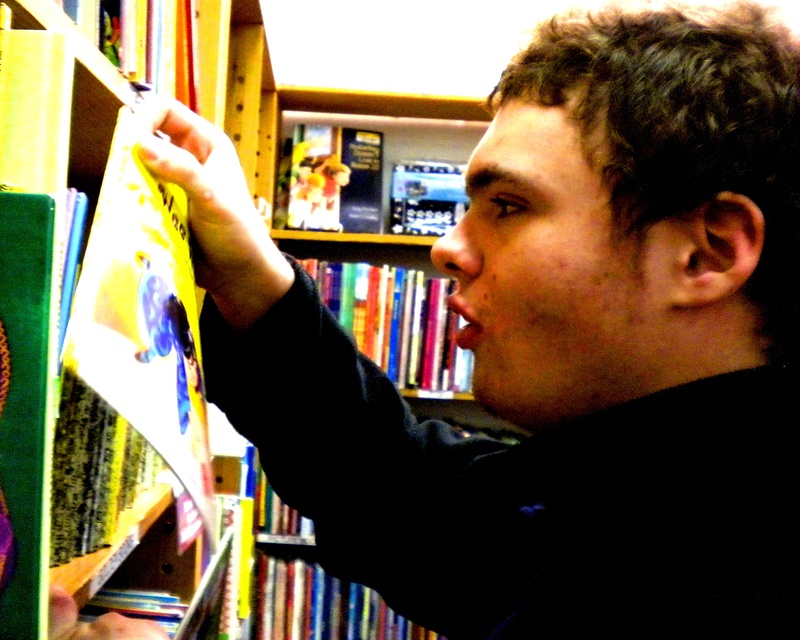Psychology Today blogger Amy Lutz told John Elder Robison her son’s “…cognitive impairments are too severe” for him to choose where he lives. Robison responded: “I had a hard time believing that. My dogs can pick which place they want to sleep, and they are non verbal with pretty low IQ. Yet they have no difficulty with that choice. In fact, most every animal chooses a place to sleep on its own. Was I to believe her autistic child lacks that ability?” Lutz responds by offering Robison the opportunity to spend time with her son.
Without commenting on Robison’s dog analogy (I’d rather not step into that pile — I doubt he intended to be offensive, and in fact has said he’ll avoid such comparisons in the future, so let it go), I have to wonder why he, and like minded advocates, find this idea — that many autistics would not be able to make such an appropriate choice for themselves — so hard to accept. I would extend Lutz’s offer to anyone who shares Robison’s view, to spend time with Ben. Not a day, just an hour would be more than enough. I have a hard time believing an intelligent person, typical or autistic, would suggest he would be able to make decisions for himself regarding something as huge, for example, as where he lives. It would be absurd.
The crux, to me, is this: How many guys and gals like Ben has Robison, or like minded advocates, interacted with?
Many Aspergers/high functioning individuals are out in the world, and can fully express themselves. We “typicals” interact with them, and they with us and each other.
Not our guys. Ben is far less “visible,” and what he is or isn’t capable of won’t be obvious to anyone watching him eat a 5 Guys burger.
High functioning autistics aren’t just in the world, they are of it. Ben and his peers live in the world, but are much less “of” the world, like it or not. Ben’s very survival, let alone a good life, depends largely on us, his Mom and Dad. Spending time with Ben, I believe, would turn doubt into acceptance of that fact. And this relative invisibility can mask how many people suffer to Ben’s degree.
Having spent the past 28 years working in and directing a court mediation service, I find it distressing how adversarial these issues have become. Autism advocate Gene Bensinger has referred to these as “false choices” that simply “sow conflict,” and he is right. Most of our (the entire autism “community’s”) interests actually overlap and are not mutually exclusive.
This effort and energy is needed in a different autism arena — housing and services for the growing adult population. Currently, 81% of adults with autism live with their aging parents. The irony is that the autism community is fighting over crumbs. Services and good housing options are so inadequate, they can approach third-world conditions. Take a look at Illinois, for one harrowing example.
Many autism advocates prescribe what they believe is right for ALL autistics, regardless of their true expertise and experience with the entire range of people on the spectrum. Parents like us are speaking for one autistic, the one we know best, and the one for whom we can best advocate.
~~~
Ben making a choice
~~~
Related: Should Autism and Asperger’s Get a Divorce?
Also on Huffington Post: Like It Or Not, Parents of Many Autistics Do Know Best
